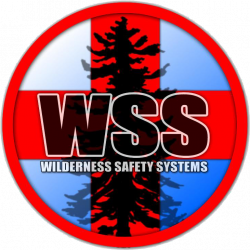This advanced course is designed for professionals who face harsh environments, remote care situations, and extended periods without professional support. Rural ambulance crews, wilderness rescue teams, northern trip guides, adventurers or in developing nations, remote fishing camp & resort managers all face challenges that are unknown to the inner-city provider.
Wilderness medicine differs significantly from conventional EMS courses and other programs that are oriented toward the urban environment. Rural ambulance crews and wilderness rescue teams face challenges that are unknown to the inner-city provider. This course addresses the special problems associated with prolonged patient care (greater than two hours), severe environments, and improvised equipment. It is the definitive medical training course for rural EMS providers and wilderness rescue team members.
Course Location & Start Times
The WEMR course will be hosted at the Paddlefoot Lodge, nestled in the heart of Muskoka. Just outside Dorset, Ontario, the lodge is approximately 2.5 hours North of Toronto. Classes begin at 8:30 AM everyday including the first course day. Students should plan to arrive the night before the course starts.
Class Format
The WEMR is 190 hours taught over a 20 period with four days off. Most days will run from 8:30 AM – 6:00 PM. Mornings begin with quizzes and case presentations by those who had a hospital rotation the previous day. The rest of the morning is lecture. Afternoons have practical hands-on sessions and videotaped simulations. Expect five emergency rescue simulations with made-up victims as well as one or two extended overnight simulations with extended patient care. Evenings are reserved for case studies, clinical rotations, and assignments. Much of the work is outside regardless of weather.
Urban Response
The EMR is an introduction to professional prehospital care. EMR is designed to graduate EMT/EMR trained students that feel comfortable applying traditional urban EMS skills in remote areas with limited equipment. Learning and practising those skills in an urban environment is an important first step. In Canada the EMR is the basic standard set by the Paramedic Association of Canada.
WILDERNESS MEDICINE & RESCUE
The EMR is guaranteed to provide:
- A more in depth study of anatomy, physiology and practice of critical thinking will improve student’s understanding of trauma and illness.
- Numerous scenarios or PAS (Patient Assessment System) drills and at least 5 extended (one overnight) and dramatized accident simulations with video feedback debriefing. These scenarios are as realistic as we can make them. They are designed to bring students to a new level with their assessment and treatment skills.
- An integration of wilderness rescue and medical skills
- Hours of hands-on sessions to learn and practice equipment improvisation in the wilderness. Specific workshops on: litter building, improvised backboards, emergency shelters, and evacuation systems.
- Special focuses on: trauma, oxygen administration and bag valve mask use, automatic defibrillation, environmental medicine, toxins, travel medicine, backcountry medicine, wilderness protocols, and wilderness rescue.
- Students will also be certified in CPR at the Basic Life Support level by Wilderness Medical Associates. Certifications remain valid for three years.
- Specialty workshops will be held on swiftwater, ropes, and motor vehicle rescue techniques taught by in house and guest instructors.
Clinical Experience (Ambulance & Hospital time)
Students will participate in a minimum of 10 hours of emergency room observation in Huntsville and Bracebridge Hospitals.
Certification & Standards
Graduates will receive a Wilderness Emergency Medical Responder (WEMR) certification that meets the competency profile for the EMR established by the Paramedic Association of Canada. This is an internationally recognized skill profile. Our WEMR also meets all requirements of the US DOT Emergency Medical Technician-Basic (EMT-B), The CMA Emergency Medical Responder (EMR) standards, and the Wilderness Medical Associates WEMT Upgrade curriculum. Students wishing to be certified and/or licensed in US states must contact that state’s EMS office prior to the course to apply for reciprocity. Your WMA instructors will be happy to assist you with this process.
Topics for the WEMR include patient assessment, anatomy & physiology, equipment improvisation, trauma, oxygen administration, automatic defibrillation, environmental medicine, toxins, backcountry medicine, wilderness protocols, and wilderness rescue. Students will also be certified in CPR at the Basic Life Support level by Wilderness Medical Associates. Certifications remain valid for three years. Students must be at least 18 years old to participate in this course
Texts
The cost of the course includes many handouts, EMR lecture notebook, Wilderness Medical Associates field guide, SOAP notes, and our text:Emergency Medical Responder: A Skills Approach, Third Canadian Edition.
Completion
Successful completion of the course is based on 100% attendance, course participation, performance during rotations, and satisfactory performance on both written and practical final exams. Passing is based on the cumulative average on the: practical and written exams; satisfactory performance in all experiential activities. Not everyone passes.

